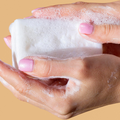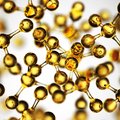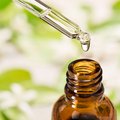Today, as a highly debated ingredient, you may have many questions about the use of palm oil in certified organic beauty products.
Why is it allowed in certified organic beauty products? Under what conditions?
All the answers are in this article!
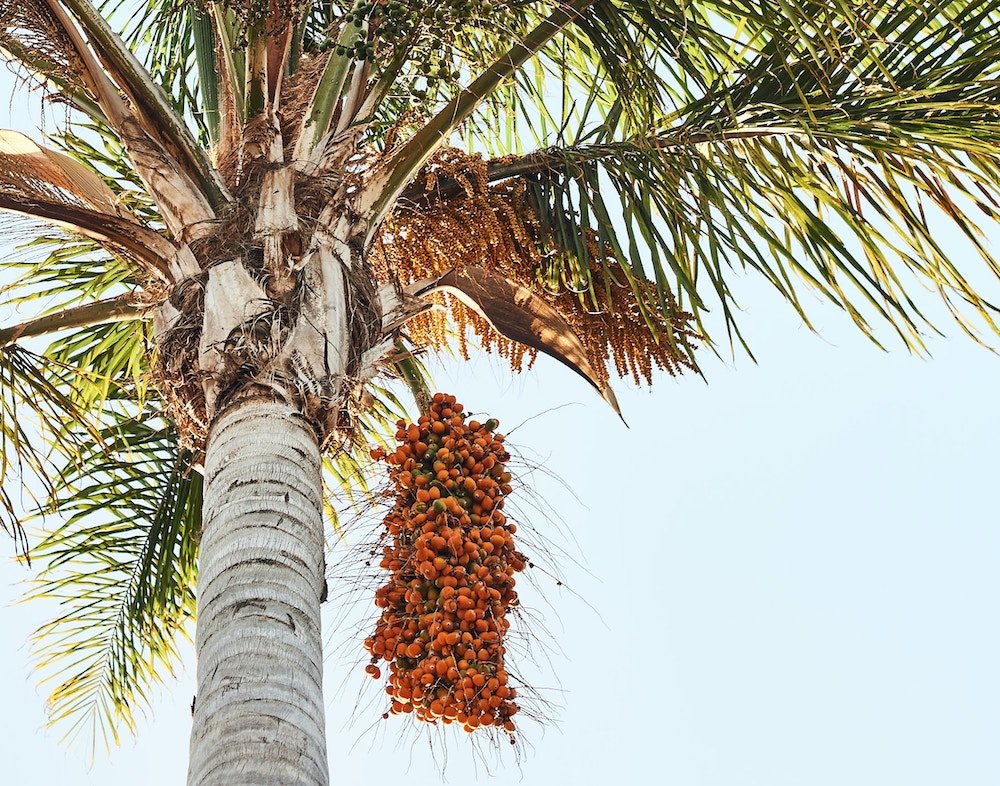
What is Palm Oil?
Palm oil is a vegetable oil extracted from the pulp of fruits grown on Oil Palm Trees. From this fruit, we can also cultivate palm kernel oil which is extracted from the pit of the fruit. These oils are the most widely exploited on a global scale and is primarily used in the food industry, cosmetics, and biofuels. In this article, we englobe the two oils into “Palm oil” for easier reading.
The main producers of palm oil are Indonesia and Malaysia (85% of global production), with the remainder located in tropical countries in Asia, Africa, and Latin America.
Palm Oil in beauty and hygiene products
The use of palm oil in the beauty and hygiene products represents about 10% of the global market and 7% of the European market. It can be found in the composition of many cosmetic products such as makeup, body oils, hair products, as well as face and body creams.
Used for its nourishing, emollient, and protective properties, as well as its ability to add texture to cosmetics, palm oil’s INCI is listed as “Elaeis Guineensis fruit oil” on the label of cosmetic products. Palm kernel oil’s INCI, on the other hand, is listed as Elaeis Guineensis kernel oil.
However, it is more often the numerous derivatives that are used in cosmetic products for their different aspects:
- Foaming agents: lauryl glucoside, sodium lauryl sulfate, ...
- As well as emollients (which soften and smooth): Caprylic capric triglycerides, cetearyl alcohol, glycerol, ...
It is worth noting that some of its derivatives may be made from other vegetable oils (e.g., coconut oil, soybean oil), but this remains rare. Why ? Because palm oil is currently the cheapest oil and has a better yield compared to a cultivation of another oil of the same surface. (4 times more than coconut oil, 10 times more than soybean oil, 5 times more than rapeseed oil, and 6.5 times more than sunflower oil).
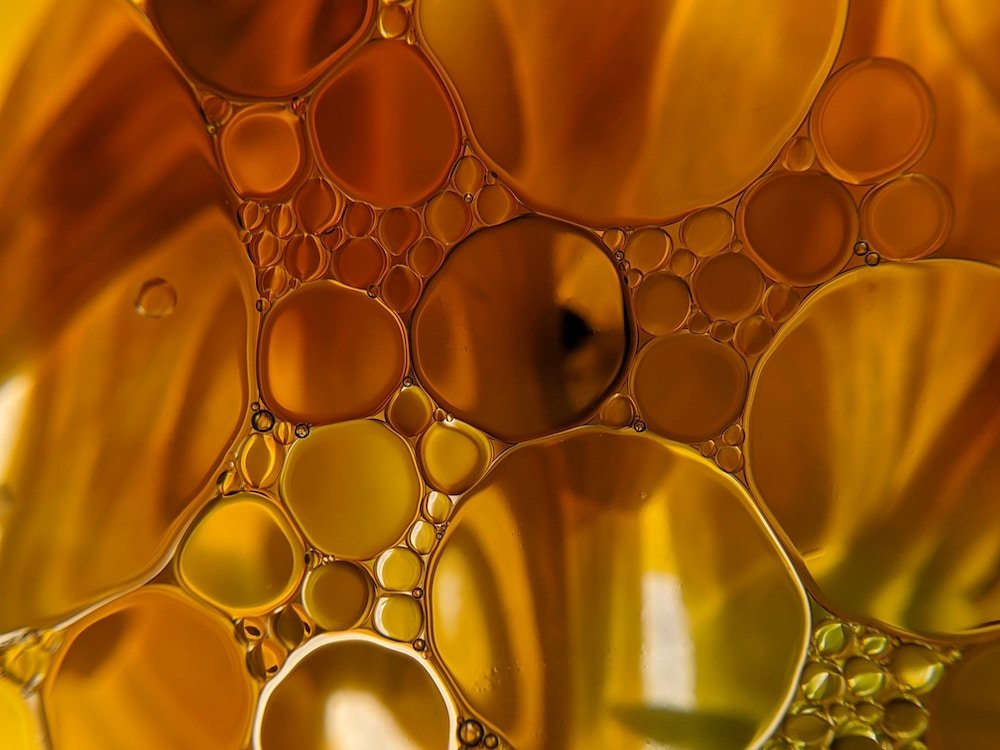
Why is Palm Oil so Widely Criticized?
Using Palm oil in beauty products does not raise any specific health issues. However, its environmental impact is highly controversial.
The global demand for palm oil is so significant that large areas of forests are destroyed and burned to make way for Oil Palm plantations. This deforestation leads to numerous consequences:
- Destruction of the habitats of many wild animals (rhinoceroses, orangutans, elephants, etc.), thus endangering their survival.
- Significant increase in greenhouse gas emissions, with consequences for the climate. According to a Greenpeace report presented in 2017, Indonesia owes its third-place global ranking in greenhouse gas production to deforestation.
Societal issues are also at the forefront of this controversy:
- In 2016, Amnesty International denounced child exploitation and the conditions of forced and risky labor for workers in Indonesian plantations.
- Communities depending on the forest for their livelihoods are also affected.
Thus, produced with unsustainable practices, palm oil production threatens populations, ecosystems, and the climate.
Yes, palm oil is allowed in organic cosmetics 🌴🧴
Why not ban palm oil in organic beauty products?
As we've seen, palm and palm kernel derivatives are present in a very large number of beauty and hygiene products for their benefits on the skin and hair, as well as for their lower costs.
Replacing them proves to be a significant challenge for cosmetic ingredient manufacturers. Indeed, not using palm or palm kernel derivatives would mean using another oil and thus shifting the issues elsewhere and therefore threatening other communities and species. Coconut oil or soybean oil could replace palm oil, but they are much less profitable in regard to their yield on an equivalent cultivated area; meaning more soybean or coconut plantations would be needed to meet global demands.
Moreover, the exploitation of oil palm contributes to the income of local communities.
To date, rather than banning the use of palm oil, we advocate for the use of the most sustainable, traceable, and available palm oil possible. 💪
Under what conditions is palm oil allowed in organic cosmetics?
Even though the beauty industry is not the main cause of intensive palm oil exploitation… sustainability, traceability, and transparency remain fundamental issues within our COSMOS standard.
The use of palm oil, palm kernel oil, and their derivatives is regulated to ensure that their sourcing limits deforestation, its impact on climate change, and the potential loss of biodiversity.
Thus, all these ingredients must be either certified organic or certified sustainable according to one of the following four standards:
- RSPO (Roundtable on Sustainable Palm Oil) with a minimum required certification grade of Mass Balance.
- SAN (Sustainable Agriculture Network)
- RSB (Roundtable On Sustainable Biomaterials)
- UEBT (Union for Ethical BioTrade)
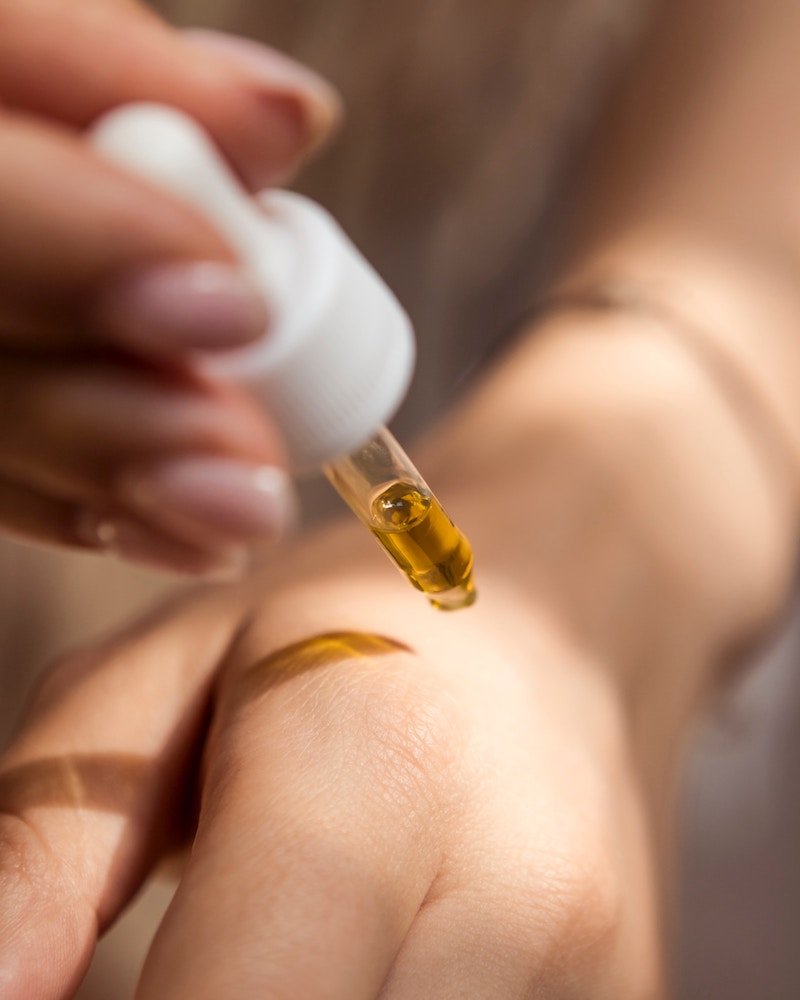
It is also worth noting that in May 2023, the European regulations aiming to combat the marketing of products derived from deforestation in Europe was adopted and will come into effect in 2024. This legislation specifically concerns palm oil. Thus, if a company wishes to sell a product or ingredient derived from palm oil in the European Union, it must first prove that its product/ingredient is not sourced from deforestation.
Should one prioritize cosmetic products with or without palm oil?
As we've mentioned, palm oil is a highly sought-after ingredient for its cost and unmatched yield, as well as for its derivatives with multiple beneficial properties for beauty product formulations. Today, formulating products without palm derivatives is not so simple. And as we've seen, replacing it may simply risk shifting its issues elsewhere.
With what concerns our organic label, we either use palm oil sustainably or not at all.
With or without palm oil, the choice is yours!
Don’t get fooled by Greenwashing in regard to palm oil
Because of this international debate, the mention "palm oil-free" is becoming more and more common. Is this communication tactic reliable? Yes! But proceed with caution...
Even if a brand markets its product as "palm oil-free", it does not necessarily mean that the brand has avoided other controversial ingredients in its formula. It's better to trust a product labelled Cosmébio, certified COSMOS. 🌿
Sources :
Huile de palme - Stratégie nationale de lutte contre la déforestation importée
WWF France - Production responsable huile de palme
WWF France - Politique d'approvisionnement des entreprises
Greenpeace - Déforestation si loin si proche
Amnesty International France - Huile de palme : Travail des enfants et travail forcé
Huile de palme durable

